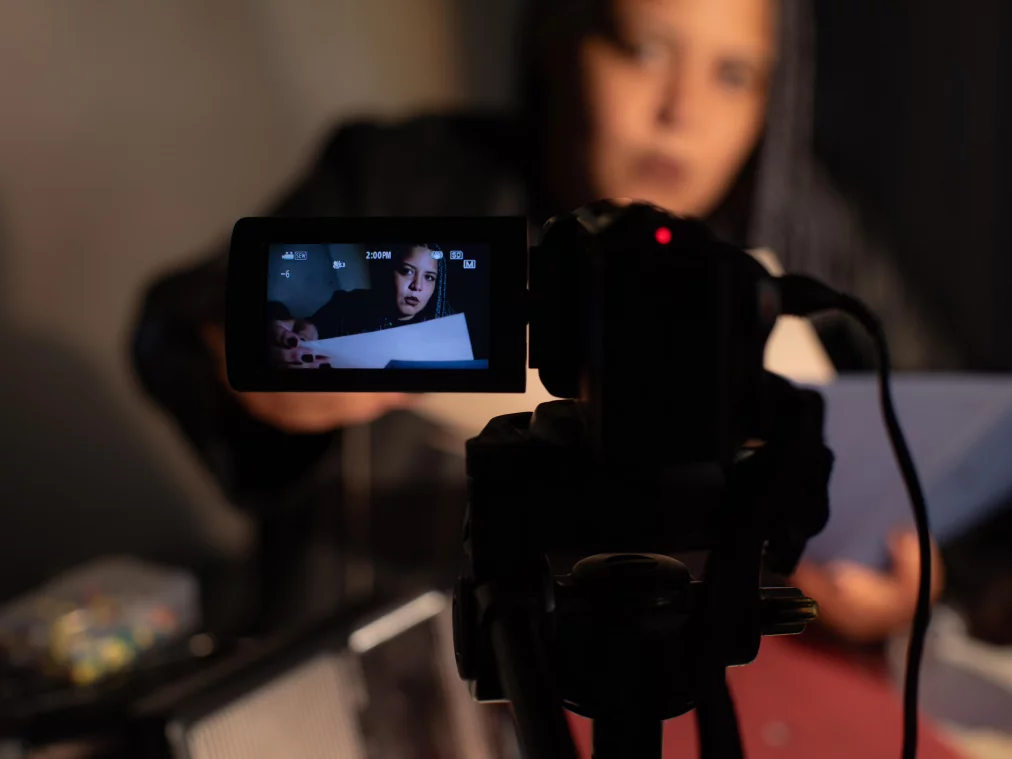Simone Dede Ayivi & Mareice Kaiser: Aftershow Talk – Sophiensæle | Independent Theater in Berlin
Simone Dede Ayivi & Mareice Kaiser: Aftershow Talk

Which topics belong in therapy, and which belong in the streets?
In Autsch, Simone Dede Ayivi throws everything onto the stage: the personal, the political, and all that which never quite fits into place. Too often, individual solutions are sought for structural problems – and sometimes, it helps to turn the gaze inward instead of constantly working on the outside. More yoga won’t lower the rent, but doing no breathing exercises isn’t a solution either. One woman on a stage won’t be able to untangle it all. And whether one is truly alone with the question “Why do I feel so awful?” can ultimately only be found out together.
After the performance, an aftershow talk with Simone Dede Ayivi (Autsch) and Mareice Kaiser (Ich weiß es doch auch nicht) invites the audience to continue the conversation: The authors will discuss their work, perspectives, and approaches to the evening’s themes – including depression under capitalism, ableism, inequality, and the impact of social crises on personal well-being.
By and with: Simone Dede Ayivi, Mareice Kaiser
Supported by the Senate Department for Culture and Social Cohesion and the Fonds Darstellende Künste with funds from the Federal Government Commissioner for Culture and the Media as part of Neustart Kultur. The revival is funded by the Berlin Senate Department for Culture and Social Cohesion. Media partners: Missy Magazine, Siegessäule, taz.
Simone Dede Ayivi’s performances discuss questions of representation, resistance and community. Her works are biographically motivated, mostly interview-based research projects. She explores ways of remembering and rediscovering - and shines a spotlight on political struggles and movements, Black history and the present. Using recorded discussions, interviews and political speeches, she seeks to amplify the voices of marginalized communities. With Afrofuturistic narratives, she creates a space in the theater to ponder, translate and reinvent. A space for utopias.
Ayivi reveals her research methods and the means of theater, allowing the audience to become part of her content-related and aesthetic search process. The construction of images is also addressed and viewing habits are questioned. Together with her Kompliz*innen, she has developed performances in cooperation with the Sophiensæle, the Pavillon Hannover, the Künstlerhaus Mousonturm Frankfurt and the Festival Theaterformen. She has worked as a director at Schauspielhaus Graz, Theater Oberhausen and Deutsches Theater Berlin, among others. In 2022, Simone Dede Ayivi received the Tabori Award from the Fonds Darstellende Künste.
Mareice Kaiser works as a journalist, author, and moderator. She scrolls, writes, and speaks about issues of justice. Her essay Das Unwohlsein der modernen Mutter was nominated for the German Reporter Award, and the book of the same name became a SPIEGEL bestseller published by Rowohlt. In her video column Mareice Kaiser geht ins Theater for the Berliner Schaubühne, she explored forms of exclusion in theatre – onstage, backstage, and in the audience. The central themes of her work include power structures, motherhood, and labour under late capitalism. Together with Josephine Apraku, she hosts a podcast about the things everyone needs: Revolution und Ferien.
